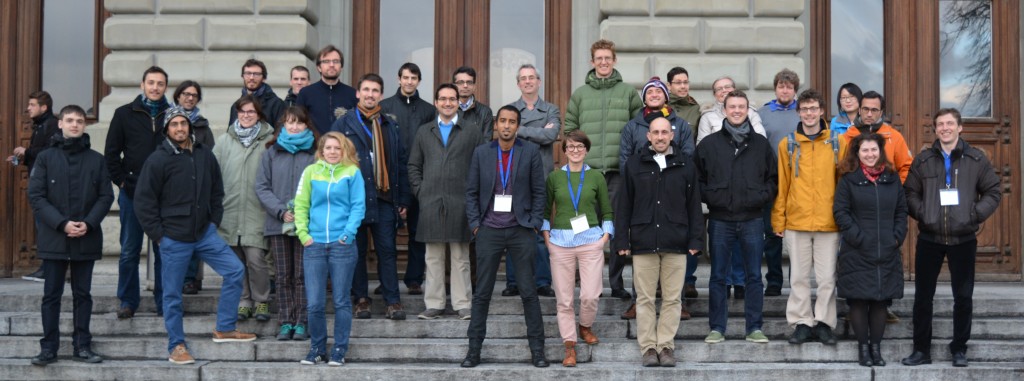
- This event has passed.
1st PlanetS workshop on Bayesian Statistics
26/11/2015
Event Navigation
Thank you!
The organisers would like to thank the speakers and all participants of the workshop for a very fruitful meeting. See you again soon for the second workshop in the series.
The video recording of the talks can be found here. You can skip between talks using the bookmarks on the left hand menu.
=====
Data analysis is a central part of the scientific method. The discovery and characterisation of exoplanets requires sophisticated statistical methods, to extract weak planetary signals from dominant stellar effects and noisy datasets. Computational capabilities have increased in the past decades giving access for researchers in many fields to Bayesian statistical tools. The exoplanetary community is now using these tools for their analysis routinely: planets detections, planetary atmospheres, high contrast imaging, planet populations etc.
This workshop aims at bringing together researchers from the PlanetS community with experts in Bayesian statistics as well as researchers already employing the Bayesian techniques.
No previous knowledge is assumed. An introductory lecture should bring everyone on the same page.
Subjects
- Bayesian optimisation.
- Sampling techniques and MCMC.
- Gaussian processes.
Agenda
The abstract booklet is available here.
No hand-out will be provided. Please print the booklet yourself if you need it.
Morning (9 – 12:30)
08:30. Welcome coffee
09:00 – 10:00. Adam Amara (ETHZ). Statistical inference.
10:00 – 11:00. Daniel Mortlock (Imperial College London). Basic MCMC: implementing the Metropolis algorithm.
11:00 – 11:30. Coffee break
11:30 – 12:30. Farhan Feroz (Cambridge). Performing Bayesian Model Selection with Nested Sampling.
12:30 – 14:00. Lunch break
Afternoon (14 – 18)
14:00 – 15:00. David Ginsbourger (IDIAP / Uni Bern). A journey through Gaussian random fields with a view towards Bayesian optimization.
15:00 – 15:15. Dario Azzimonti (Uni Bern). Conservative estimate for the excursion set of a deterministic function under a Gaussian random field model.
15:15 – 15:45. Coffee Break.
15:45 – 16:30. Niklas Linde (UNIL). The role of model selection, summary statistics and multiple-point statistics in Bayesian inverse problems: Examples from geophysics.
16:30 – 16:45. Vinesh Rajpaul (Oxford). Gaussian processes for modelling stellar activity and detecting planets.
16:45 – 17:00. Game!
17:00 – 18:00. Discussion





